Great Books of the World
Historical Non-Fiction
History is the study of the past, specifically how it relates to humans. It is an umbrella term that relates to past events as well as the discovery, collection, organization, and presentation of information about these events.
30 titles sorted by popularity
-
 Walden
Henry David Thoreau
Walden
Henry David Thoreau
Walden is an American book written by noted transcendentalist Henry David Thoreau. The work is part personal declaration of independence, social experiment, voyage of spiritual discovery, satire, and manual for self-reliance. First published in 1854, it details Thoreau's experiences over the course of two years, two months, and two days in a cabin he built near Walden Pond, amidst woodland owned by his friend and mentor Ralph Waldo Emerson, near Concord, Massachusetts. The book compresses the time into a single calendar year and uses passages of four seasons to symbolize human development.
-
 The Federalist Papers
Alexander Hamilton
The Federalist Papers
Alexander Hamilton
The Federalist Papers are a series of 85 articles and essays written by Alexander Hamilton, James Madison, and John Jay promoting the ratification of the United States Constitution. Seventy-seven were published serially in The Independent Journal and The New York Packet between October of 1787 and August 1788. A compilation of these and eight others, called The Federalist; or, The New Constitution, was published in two volumes in 1788 by J. and A. McLean. The series' correct title is The Federalist; the title The Federalist Papers did not emerge until the twentieth century.
-
 King Richard III
William Shakespeare
King Richard III
William Shakespeare
Richard III is an historical play by William Shakespeare, believed to have been written in approximately 1592. It depicts the Machiavellian rise to power and subsequent short reign of Richard III of England. The play is grouped among the histories in the First Folio and is most often classified as such. Occasionally, however, as in the quarto edition, it is termed a tragedy. Richard III concludes Shakespeare's first tetralogy .
-
 The history of Herodotus
Herodotus
The history of Herodotus
Herodotus
The Histories of Herodotus is now considered as the founding work of history in Western literature. Written from the 450s to the 420s BC in the Ionic dialect of classical Greek, The Histories serves as a record of the ancient traditions, politics, geography, and clashes of various cultures that were known around the Mediterranean and Western Asia at that time. It is not an impartial record but it remains one of the West's most important sources regarding these affairs. Moreover, it established without precedent the genre and study of history in the Western world, although historical records and chronicles existed beforehand.
-
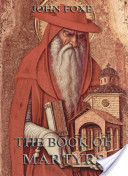 Fox's Book of Martyrs
John Foxe
Fox's Book of Martyrs
John Foxe
The Actes and Monuments, popularly known as Foxe's Book of Martyrs, is a work of Protestant history and martyrology by John Foxe, first published in English in 1563 by John Day. It includes a polemical account of the sufferings of Protestants under the Catholic Church, with particular emphasis on England and Scotland. The book was highly influential in those countries, and helped shape lasting popular notions of Catholicism there. The book went through four editions in Foxe's lifetime and a number of later editions and abridgements, including some that specifically reduced the text to a Book of Martyrs.
-
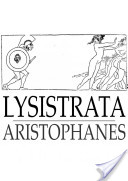 Lysistrata
Aristophanes
Lysistrata
Aristophanes
Lysistrata is a comedy by Aristophanes. Originally performed in classical Athens in 411 BCE, it is a comic account of one woman's extraordinary mission to end The Peloponnesian War. Lysistrata persuades the women of Greece to withhold sexual privileges from their husbands and lovers as a means of forcing the men to negotiate peace — a strategy, however, that inflames the battle between the sexes. The play is notable for being an early exposé of sexual relations in a male-dominated society. The dramatic structure represents a shift away from the conventions of Old Comedy, a trend typical of the author's career. It was produced in the same year as Thesmophoriazusae, another play with a focus on gender-based issues, just two years after Athens' catastrophic defeat in the Sicilian Expedition.
-
 The Essays of "George Eliot"
George Eliot
The Essays of "George Eliot"
George Eliot
Mary Anne Evans , known by her pen name George Eliot, was an English novelist, journalist, and translator and one of the leading writers of the Victorian era. She is the author of seven novels, including Adam Bede , The Mill on the Floss , Silas Marner , Middlemarch , and Daniel Deronda , most of them set in provincial England and known for their realism and psychological insight.
-
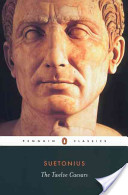 The Lives of the Twelve Caesars, Complete
Suetonius
The Lives of the Twelve Caesars, Complete
Suetonius
As private secretary to the Emperor Hadrian, Suetonius gained access to the imperial archives and used them (along with carefully gathered eye-witness accounts) to produce one of the most colourful biographical works in history. 'The Twelve Caesars' chronicles the public careers and private lives of the men who wielded absolute power over Rome, from the foundation of the empire under Julius Caesar and Augustus, to the decline into depravity and civil war under Nero, and the recovery and stability that came with his successors. A masterpiece of anecdote, wry observation and detailed physical description, 'The Twelve Caesars' presents us with a gallery of vividly drawn - and all too human - individuals.
-
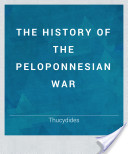 The History of the Peloponnesian War
Thucydides
The History of the Peloponnesian War
Thucydides
The History of the Peloponnesian War is a historical account of the Peloponnesian War, which was fought between the Peloponnesian League and the Delian League . It was written by Thucydides, an Athenian historian who also happened to serve as an Athenian general during the war. His account of the conflict is widely considered to be a classic and regarded as one of the earliest scholarly works of history. The Histories are divided into eight books by editors of later antiquity.
-
 My Bondage and My Freedom
Frederick Douglass
My Bondage and My Freedom
Frederick Douglass
My Bondage and My Freedom is an autobiographical slave narrative written by Frederick Douglass and published in 1855. It is the second of three autobiographies written by Douglass, and is mainly an expansion of his first , discussing in greater detail his transition from bondage to liberty. Following his liberation, Douglass, a former slave, went on to become a prominent abolitionist, speaker, author, and publisher.
-
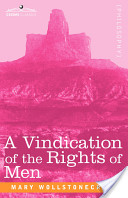 A Vindication of the Rights of Woman
Mary Wollstonecraft
A Vindication of the Rights of Woman
Mary Wollstonecraft
A Vindication of the Rights of Woman: with Strictures on Political and Moral Subjects , written by the 18th-century British feminist Mary Wollstonecraft, is one of the earliest works of feminist philosophy. In it, Wollstonecraft responds to those educational and political theorists of the 18th century who did not believe women should have an education. She argues that women ought to have an education commensurate with their position in society, claiming that women are essential to the nation because they educate its children and because they could be "companions" to their husbands, rather than mere wives. Instead of viewing women as ornaments to society or property to be traded in marriage, Wollstonecraft maintains that they are human beings deserving of the same fundamental rights as men.
-
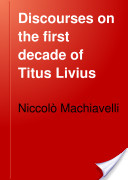 Discourses on the First Decade of Titus Livius
Niccolò Machiavelli
Discourses on the First Decade of Titus Livius
Niccolò Machiavelli
Niccolò di Bernardo dei Machiavelli was an Italian historian, politician, diplomat, philosopher, humanist and writer based in Florence during the Renaissance. He was for many years an official in the Florentine Republic, with responsibilities in diplomatic and military affairs. He was a founder of modern political science, and more specifically political ethics. He also wrote comedies, carnival songs, and poetry. His personal correspondence is renowned in the Italian language. He was Secretary to the Second Chancery of the Republic of Florence from 1498 to 1512, when the Medici were out of power. He wrote his masterpiece, The Prince, after the Medici had recovered power and he no longer held a position of responsibility in Florence.
-
 Orthodoxy
G. K. Chesterton
Orthodoxy
G. K. Chesterton
Orthodoxy is a book by G. K. Chesterton that has become a classic of Christian apologetics. Chesterton considered this book a companion to his other work, Heretics. In the book's preface Chesterton states the purpose is to "attempt an explanation, not of whether the Christian faith can be believed, but of how he personally has come to believe it." In it, Chesterton presents an original view of Christian religion. He sees it as the answer to natural human needs, the "answer to a riddle" in his own words, and not simply as an arbitrary truth received from somewhere outside the boundaries of human experience.
-
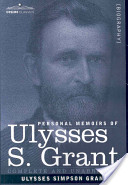 Personal Memoirs of U. S. Grant, Complete
Ulysses S. Grant
Personal Memoirs of U. S. Grant, Complete
Ulysses S. Grant
Completed just days before his death and hailed by Mark Twain as "the most remarkable work of its kind since the Commentaries of Julius Caesar," this is the now-legendary autobiography of ULYSSES SIMPSON GRANT (1822-1885), 18th president of the United States and the Union general who led the North to victory in the Civil War. Though Grant opens with tales of his boyhood, his education at West Point, and his early military career in the Mexican-American war of the 1840s, it is Grant's intimate observations on the conduct of the Civil War, which make up the bulk of the work, that have made this required reading for history students, military strategists, and Civil War buffs alike.
-
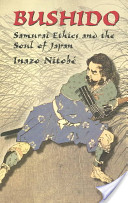 Bushido, the Soul of Japan
Inazo Nitobe
Bushido, the Soul of Japan
Inazo Nitobe
Bushido: The Soul of Japan written by Inazo Nitobe is, along with the classic text Hagakure by Tsunetomo Yamamoto , a study of the way of the samurai. A best-seller in its day, it was read by many influential foreigners, among them President Theodore Roosevelt, President John F. Kennedy and Robert Baden-Powell. It may well have shaped Baden-Powell's ideas on the Boy Scout movement he founded.
-
 The History Of The Decline And Fall Of The Roman Empire
Edward Gibbon
The History Of The Decline And Fall Of The Roman Empire
Edward Gibbon
The History of the Decline and Fall of the Roman Empire is Edward Gibbon's magnum opus, written and published over a 13-year period beginning in 1776. It not only chronicles the events of the downfall starting with the end of the rule of Marcus Aurelius, but proposes a theory as to why Rome collapsed: the populace, Gibbon theorizes, lost its moral fortitude, its militaristic will, and its sense of civic duty.
-
 Memoirs of General William T. Sherman
William T. Sherman
Memoirs of General William T. Sherman
William T. Sherman
William Tecumseh Sherman was an American soldier, businessman, educator and author. He served as a General in the Union Army during the American Civil War , for which he received recognition for his outstanding command of military strategy as well as criticism for the harshness of the "scorched earth" policies that he implemented in conducting total war against the Confederate States. Military historian B. H. Liddell Hart famously declared that Sherman was "the first modern general".
-
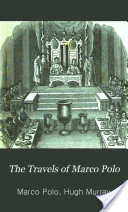 The Travels of Marco Polo
Marco Polo
The Travels of Marco Polo
Marco Polo
Marco Polo was an Italian merchant traveler from the Republic of Venice whose travels are recorded in Livres des merveilles du monde, a book which did much to introduce Europeans to Central Asia and China. He learned the mercantile trade from his father and uncle, Niccolò and Maffeo, who traveled through Asia, and apparently met Kublai Khan. In 1269, they returned to Venice to meet Marco for the first time. The three of them embarked on an epic journey to Asia, returning after 24 years to find Venice at war with Genoa; Marco was imprisoned, and dictated his stories to a cellmate. He was released in 1299, became a wealthy merchant, married and had three children. He died in 1324, and was buried in San Lorenzo.
-
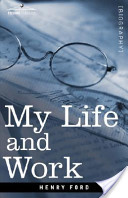 My Life and Work
Henry Ford
My Life and Work
Henry Ford
Henry Ford was an American industrialist, the founder of the Ford Motor Company, and sponsor of the development of the assembly line technique of mass production. Ford did not invent the automobile, but he developed and manufactured the first automobile that many middle class Americans could afford to buy. His introduction of the Model T automobile revolutionized transportation and American industry. As owner of the Ford Motor Company, he became one of the richest and best-known people in the world. He is credited with "Fordism": mass production of inexpensive goods coupled with high wages for workers. Ford had a global vision, with consumerism as the key to peace. His intense commitment to systematically lowering costs resulted in many technical and business innovations, including a franchise system that put dealerships throughout most of North America and in major cities on six continents. Ford left most of his vast wealth to the Ford Foundation and arranged for his family to control the company permanently.
-
 The Complete Memoirs of Jacques Casanova de Seingalt
Giacomo Casanova
The Complete Memoirs of Jacques Casanova de Seingalt
Giacomo Casanova
Giacomo Girolamo Casanova was an Italian adventurer and author from the Republic of Venice. His autobiography, Histoire de ma vie , is regarded as one of the most authentic sources of the customs and norms of European social life during the 18th century.
-
 The Autobiography of Charles Darwin
Charles Darwin
The Autobiography of Charles Darwin
Charles Darwin
The Autobiography of Charles Darwin is the autobiography of the British naturalist Charles Darwin which was published in 1887, five years after his death.
-
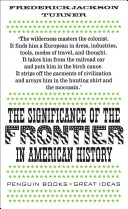 The Frontier in American History
Frederick Jackson Turner
The Frontier in American History
Frederick Jackson Turner
"The Significance of the Frontier in American History" is a seminal essay by the American historian Frederick Jackson Turner which advanced the Frontier Thesis of American history. It was presented to a special meeting of the American Historical Association at the World's Columbian Exposition in Chicago, Illinois in 1893, and published later that year first in Proceedings of the State Historical Society of Wisconsin, then in the Annual Report of the American Historical Association. It has been subsequently reprinted and anthologized many times, and was incorporated into Turner's 1921 book, The Frontier in American History, as Chapter I.
-
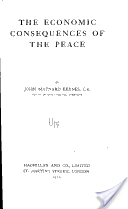 The Economic Consequences of the Peace
John Maynard Keynes
The Economic Consequences of the Peace
John Maynard Keynes
The Economic Consequences of the Peace is a book written and published by John Maynard Keynes. Keynes attended the Versailles Conference as a delegate of the British Treasury and argued for a much more generous peace. It was a best-seller throughout the world and was critical in establishing a general opinion that the Versailles Treaty was a "Carthaginian peace".
-
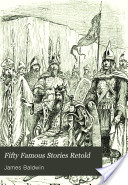 Fifty Famous Stories Retold
James Baldwin
Fifty Famous Stories Retold
James Baldwin
Fifty half-legendary tales of either heroes, famous men, or relating the history of a people. Some have slight historical value, some relate great moral truths, while others are intended only to amuse the reader.
-
 A Child's History of England
Charles Dickens
A Child's History of England
Charles Dickens
A Child's History of England is a book by Charles Dickens. It first appeared in serial form in Household Words, running from January 25, 1851 to December 10, 1853. Dickens also published the work in book form in three volumes: the first volume on December 20, 1851; the second, December 25, 1852; and the third, December 24, 1853. Although the volumes were published in December, each was postdated the following year. They bore the titles:
-
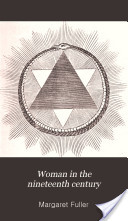 Woman in the Nineteenth Century
Margaret Fuller
Woman in the Nineteenth Century
Margaret Fuller
Woman in the Nineteenth Century is a book by American journalist, editor, and women's rights advocate Margaret Fuller. Originally published in July 1843 in The Dial magazine as "The Great Lawsuit. Man versus Men. Woman versus Women", it was later expanded and republished in book form in 1845.
-
 Lays of Ancient Rome
Baron Macaulay, Thomas Babington Macaulay
Lays of Ancient Rome
Baron Macaulay, Thomas Babington Macaulay
Lays of Ancient Rome is a collection of narrative poems, or lays, by Thomas Babington Macaulay. Four of these recount heroic episodes from early Roman history with strong dramatic and tragic themes, giving the collection its name. Macaulay also included two poems inspired by recent history: Ivry and The Armada .
-
 History of Florence and of the Affairs of Italy
Niccolò Machiavelli
History of Florence and of the Affairs of Italy
Niccolò Machiavelli
Niccolò di Bernardo dei Machiavelli was an Italian historian, politician, diplomat, philosopher, humanist and writer based in Florence during the Renaissance. He was for many years an official in the Florentine Republic, with responsibilities in diplomatic and military affairs. He was a founder of modern political science, and more specifically political ethics. He also wrote comedies, carnival songs, and poetry. His personal correspondence is renowned in the Italian language. He was Secretary to the Second Chancery of the Republic of Florence from 1498 to 1512, when the Medici were out of power. He wrote his masterpiece, The Prince, after the Medici had recovered power and he no longer held a position of responsibility in Florence.
-
 Complete Project Gutenberg Abraham Lincoln Writings
Abraham Lincoln
Complete Project Gutenberg Abraham Lincoln Writings
Abraham Lincoln
Abraham Lincoln was the 16th President of the United States and led the country during the American Civil War.
-
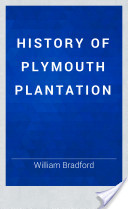 Bradford's History of 'Plimoth Plantation'
William Bradford
Bradford's History of 'Plimoth Plantation'
William Bradford
William Bradford was an English Separatist leader in Leiden, Holland and in Plymouth Colony. He was a signatory to the Mayflower Compact and served as Plymouth Colony Governor five times covering about thirty years between 1621 and 1657. His journal 'Of Plymouth Plantation' covering the period from 1620 to 1657 in Plymouth Colony is an important historic document.